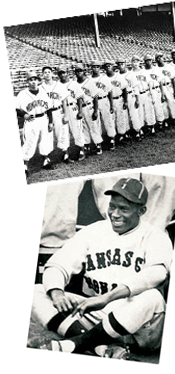

Mission Statement
Negro Leagues Baseball lesson plans are a platform for teaching a rich and varied historical content. The lessons are interactive, multimedia-based and designed for high school level students. The lessons effectively incorporate National Council for the Social Studies (NCSS) standards, specific state social studies standards, and the International Society for Technology in Education (ISTE) standards. The curricular focus of the lessons demonstrates how themes and issues reflected in studying African American baseball are rooted in U.S. history and social studies. These themes include, but are not limited to, economic, social and political studies, family history and genealogy, education, military history, and civil rights. These themes can be explored by examining individuals (talent), organizations (teams), and communities (towns) involved with African American Baseball. This material synthesizes the most reliable primary and secondary source materials on the subject in a useful format for educators.
The lessons are organized according to six critically important U.S. historical eras, they are:
1860-1880:
Slavery, War, and the Growth of Baseball
1880-1900:
American Reconstruction and Early Black Professional Baseball
1900-1920:
America’s Century and Independent Black Baseball
1920-1945:
The Birth of the Negro Leagues, Its Rise and Fall
1945-1960:
Integration and the “Barrier Breakers”
1960-present:
Negro Leagues Legacy and the Civil Rights
By incorporating African American baseball lessons into important historical eras, it is easy for teachers to implement lessons into the classroom’s already existing curriculum units. For example, a lesson titled, "Negro League Baseball’s Impact on Segregation and Integration" could be utilized as a platform for teaching larger concepts of the Civil Rights era such as Jim Crow Laws, the Civil Rights Act, important historical figures during this time, and so on. The ideal aim is for teachers to use African American baseball content throughout the year, not just during Black History Month or other limited occasions.
